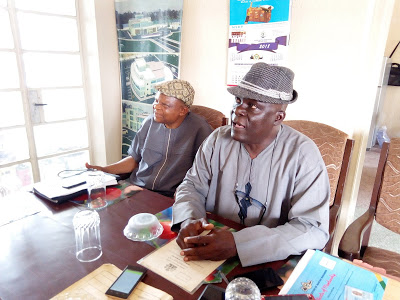Seafarer mentorship is key to a complete training required for building competence.
President of the Nigerian Association of Master Mariners, Capt. Tajudeen Alao, who spoke on the need for improving training of seafarers, said every young seafarer must have a competent mentor to guide him/her through years of training.
He, however, noted the availability of competent and experienced hands, but that they must be remunerated adequately. And when that is not the case, “the experienced hands will prefer to work as mooring masters than being lecturers.”
Training
Capt. Alao charges Nigeria on the need for a holistic commitment to seafarer training, because the competence is tested on global platforms, where the most-suitably qualified applicant gets the job.
Still considering a ‘back –to- the- basics’ element, Alao wants adequate review and value addition for the Nigerian Seafarer Development Programme (NSDP) initiative, when cadets get seatime training , else the programme would be seen to have failed.
A well-rounded training for seafarers must incorporate mentoring to ensure that cadets go through the rudiments under the watch of an experienced mariner who knows what the cadet must do at each time.
He said: “Training had been done in the past, and it was successful. It was never a crash programme. It was planned, monitored and mentored and it was successful. Unfortunately, Nigeria stopped the training because of paucity of funds.
“Those who went privately to do it, government did not support them. There are still many people out there who went that way and all they needed was for support to continue or complete.
“So many people have been sent to school, but their future is uncertain, because nowhere to serve and nowhere to work.
Vanishing fleets?
“Yes, our fleets are not increasing, rather they are vanishing,” Capt. Alao added. “The coastal tankers are no more there, the West African trade liners are not there, the international liners are non-existent.
“What we have is oil and gas, and these come in various kinds of ships with peculiarities. So, training in specialised way is expensive and the boys cannot go abroad to do them, and the government is not doing anything to have these things on ground.”
Capt. Alao thinks that the big problem to deal with is the dearth of competent lecturers, those who have the requisite knowledge and practical experience.
“Getting it right with the experienced lecturers for the cadets today is very important, if we are expecting to get much tomorrow,” he said.
What about mentorship for seafarers?
In the master mariner’s view: “Government must identify the professionals who have the teaching ability and enlist them, so the young cadets can be attached to them for monitoring of their progress and have their record.
“So, somebody going to fake seatime and period in school will not be possible. Somebody in his house can have up to 30 students that he is mentoring. And the surveyors must be gazetted, non-exclusive surveyors, same way. They are the ones to take on the responsibility of these young ones.
Inclusiveness of female cadets
“The issue of inclusiveness for female cadets have been addressed globally, and I think that is settled,” the master mariner said, as there are several female captains and other military officers.
The responsibility now, is for provision to be made on-board ships to cater for the peculiar nature of women.
“It is just like you have to consider pedestrians, physically challenged when you are building roads or public toilets. Any ship we build now, provision for female coming on board should be included because it is problematic without that.”
“The issues to be addressed are becoming clearer,” Capt. Alao said, “as some ships have jobs, but no competent hands to man them.”


































































